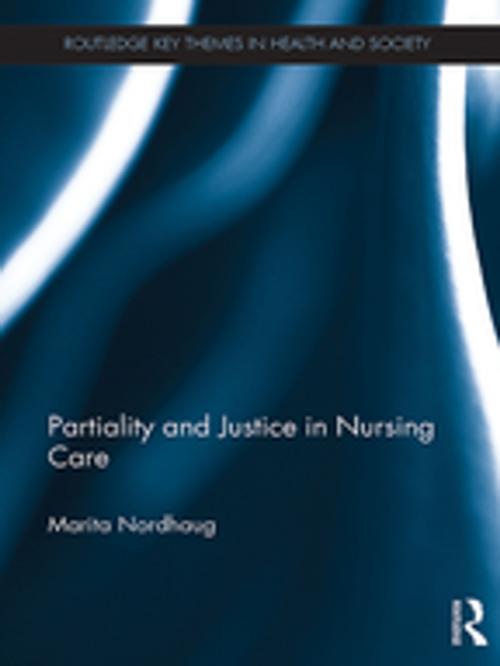Partiality and Justice in Nursing Care
Nonfiction, Health & Well Being, Medical, Nursing, Research & Theory, Reference, Ethics, Religion & Spirituality, Philosophy, Ethics & Moral Philosophy| Author: | Marita Nordhaug | ISBN: | 9781351812511 |
| Publisher: | Taylor and Francis | Publication: | July 6, 2017 |
| Imprint: | Routledge | Language: | English |
| Author: | Marita Nordhaug |
| ISBN: | 9781351812511 |
| Publisher: | Taylor and Francis |
| Publication: | July 6, 2017 |
| Imprint: | Routledge |
| Language: | English |
Partiality and Justice in Nursing Care examines the conflicting normative claims of partiality and impartiality in nursing care, looking in depth at how to reconcile reasonable concerns for one particular patient with equally important concerns for the maximisation of health-related welfare for all with relevant nursing-care needs, in a resource-limited setting.
Drawing on moral philosophy, this book explores how discussions of partiality and impartiality in moral philosophy can have relevance to the professional context of clinical nursing care as well as in nursing ethics in general. It develops a framework for normative nursing ethics that incorporates a notion of permissible partiality, and specifies which concerns an ethics of nursing care should entail when balancing partialist and impartialist concerns. At the same time, Nordhaug argues that this partiality must also be constrained by both principled and context-sensitive assessments of patients’ needs, as well as of the role-relative deontological restriction of minimising harm, something that could be mitigated by institutional and organisational arrangements.
This thought-provoking volume is an important contribution to nursing ethics and philosophy.
Partiality and Justice in Nursing Care examines the conflicting normative claims of partiality and impartiality in nursing care, looking in depth at how to reconcile reasonable concerns for one particular patient with equally important concerns for the maximisation of health-related welfare for all with relevant nursing-care needs, in a resource-limited setting.
Drawing on moral philosophy, this book explores how discussions of partiality and impartiality in moral philosophy can have relevance to the professional context of clinical nursing care as well as in nursing ethics in general. It develops a framework for normative nursing ethics that incorporates a notion of permissible partiality, and specifies which concerns an ethics of nursing care should entail when balancing partialist and impartialist concerns. At the same time, Nordhaug argues that this partiality must also be constrained by both principled and context-sensitive assessments of patients’ needs, as well as of the role-relative deontological restriction of minimising harm, something that could be mitigated by institutional and organisational arrangements.
This thought-provoking volume is an important contribution to nursing ethics and philosophy.















